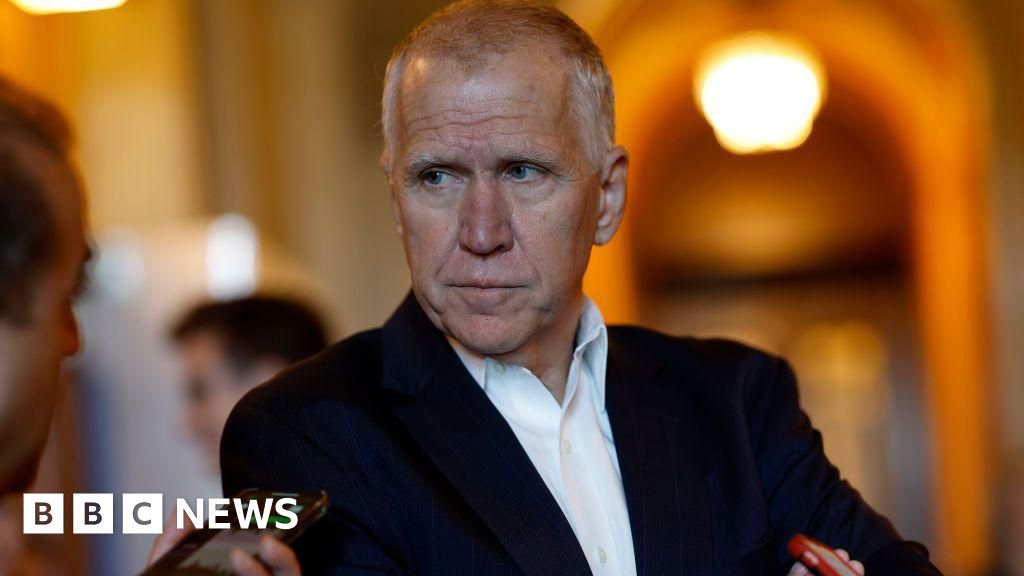Senator Thom Tillis Declines Reelection Bid Amidst Washington Gridlock
The implications of Senator Tillis' decision are far-reaching, potentially paving the way for new candidates and a shift in the political landscape of North Carolina. With the Senator's commitment to serving out his term and focusing on meaningful legislative outcomes, his departure from the reelection race sets the stage for a critical examination of the values and priorities that will guide the next generation of political leaders.

US Senator Thom Tillis, a Republican from North Carolina, has announced his decision not to run for reelection next year, citing the decline of independent thinkers in Washington and a desire to avoid the "political theatre and partisan gridlock" that has come to characterize the nation's capital.
Tillis, who has served as Senator since 2015, expressed pride in his bipartisan accomplishments, including the passage of the Tax Cuts and Jobs Act and the largest investment in mental health in American history. However, he criticized the trend of politicians prioritizing party loyalty over independent thinking, highlighting the consequences of such an approach on their constituents. This shift is exemplified by his own opposition to a key budget bill backed by President Donald Trump, which aims to cut Medicaid and impose work requirements, potentially resulting in nearly 12 million Americans losing their health coverage.
The Senator's decision comes amidst a backdrop of tension with President Trump, who has criticized Tillis and threatened to support other candidates in retaliation for his opposition to the budget bill. Trump has also indicated he might back challengers to other lawmakers who have opposed his bill, including possibly supporting Lara Trump for Tillis' seat. Despite these challenges, Tillis remains committed to serving out his term, focusing on producing meaningful results without the distraction of campaigning.
As Senator Tillis prepares to conclude his tenure, his legacy will be marked by his efforts to foster bipartisanship and challenge the status quo in Washington. His decision not to seek reelection reflects a broader concern about the state of American politics and the need for independent thinkers who can put the interests of their constituents above party loyalty.